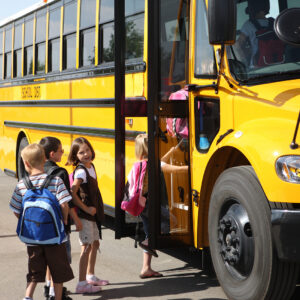A district superintendent, a teacher and a parent walk into a bar, arguing about COVID-19 protocols, year-end testing and book lists. Who pays the tab? The kids.
For decades, Americans have sent their children to learn and grow under the care of professional educators in public schools. Today’s system of school districts developed as Americans agreed that our tax dollars should be used to ensure that our youngest citizens could someday hold a job and read a ballot.
Today, our lumbering public education system is both a marvel and an albatross. The idea of public education as a civil right, as an on-ramp to opportunity, is decidedly American in its boldness. But the execution of that idea has faltered, especially for our most vulnerable children.
Significant gaps in academic outcomes for young people, typically by race and ethnicity, existed long before COVID-19. According to the 2019 National Assessment of Education Progress, only 32 percent of American eighth-graders were on track in reading. Tragically, Black students trailed White students by 27 points; for Hispanic students that gap is 20 points.
The effect of the pandemic on American schools has in many places fractured the trust between Americans and their public school system. As responses to the pandemic varied widely by state and district, parents stepped forward to ask questions about everything from virus protocols to curriculum choices. School choice has surged as families sought options beyond what their traditional public system was willing to provide.
Test data from the 2020-2021 school year in several states show that student learning has declined during the pandemic, painfully stretching those pre-pandemic gaps in performance. Today’s system is not working well for many students, and we cannot pretend otherwise.
Is the great American public-school experiment over? Can we ever rebuild trust in the public system?
In the fall of 2020, 48 million children enrolled in public K-12 schools. Millions of families rely on their local public school district today — and are likely to do so in the future. We need traditional public schools, charter schools, private schools and alternative models to meet the needs of families.
Rebuilding trust in the system requires that we rebuild the sense of purpose that inspired Americans to fund, with their own tax dollars, a system that served all kids, not just their own. This will require something of all of us — educators, parents, policymakers and other stakeholders.
Ditch the sanctimony. Sanctimony inspires no one and enrages everyone. Anyone who claims, with certitude, that they have all the answers should be ignored. The leaders we should listen to consistently do two things. First, they show their work, explaining the why and how behind their conclusions. Second, they show a willingness to adapt when better information comes to light. We expect this kind of thinking from students. Why should we exempt our leaders from the same?
We should seek the counsel of leaders like Tamara Albury, principal of the Young Women’s Leadership Academy in Fort Worth, Texas. She helped her students and faculty navigate virtual and in-person learning with both high expectations and high warmth to keep her students on track. Academics like Emily Oster, an economist, and Robin Lake, an education researcher, each stepped forward with their teams to find and organize data to help policymakers and parents.
Value proximity to the action. Listen to parents and students. Listen to teachers, principals and researchers. Volunteer for recess duty. Show up to the school board meeting. Seeing the system up close builds understanding in a way that observing from the outside can never do. Combining context and expertise matters, now more than ever, to improve outcomes for children.
This looks like the parents who started the National Parents Union and Oakland Reach to better advocate for their own children — and for other people’s children. This looks like retired FBI executive and former U.S. Marine Michael Mason, who unretired to drive a school bus amid the severe shortage in his Virginia community.
Conflict and dissent are not to be feared. Educators and parents both have a right to know how and why decisions are made. Transparency about outcomes and decision-making builds trust and respect. Obfuscation destroys it. Let’s show our collective work as we problem solve.
Our bold public-education system deserves our attention and our commitment. We need traditional public schools, charter schools and new public school models to help America — and Americans thrive.

